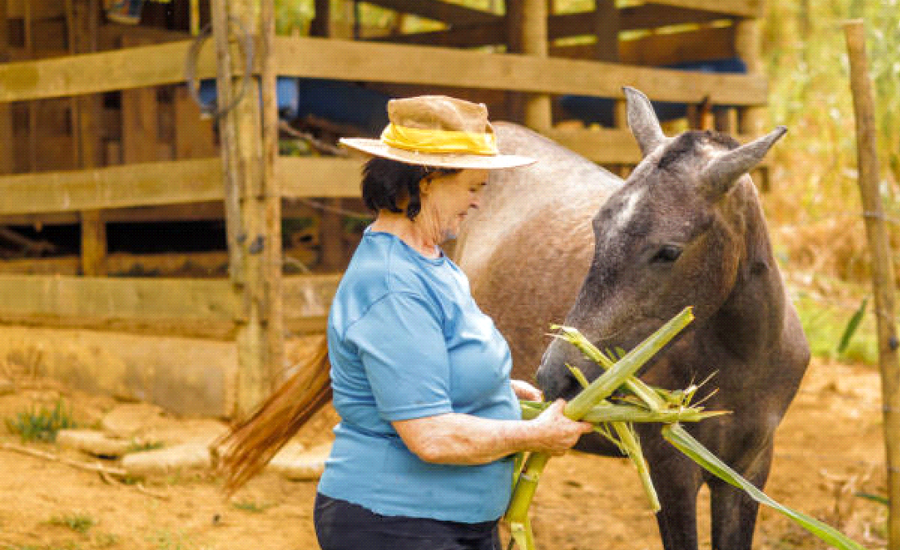Addiction is a complex and deeply personal challenge. Whether someone is battling drug dependency, alcohol addiction, or other forms of substance abuse, the road to recovery can feel daunting. However, in recent years, there has been an encouraging shift in how we approach treatment. Beyond the traditional methods of counseling and medication, many people are exploring therapy for addiction in new and innovative ways, offering fresh hope to those on the path to recovery.
In this blog, we will dive into some of the most innovative Therapy Options for Addiction available today, exploring how these groundbreaking treatments are changing lives and giving individuals a renewed sense of control over their recovery.
The Importance of Personalized Therapy for Addiction
Before we explore the new approaches, it’s essential to understand why innovation in addiction therapy is so critical. Every person’s experience with addiction is unique, and influenced by factors such as genetics, trauma, mental health, and personal circumstances. Therefore, the best therapy for addiction is one that is personalized and holistic, addressing the individual’s physical, emotional, and mental health needs.
Traditional treatments like detoxification, 12-step programs, and cognitive behavioral therapy (CBT) remain highly effective for many. However, alternative and complementary therapies are becoming popular options, especially for those who may not fully respond to conventional approaches. These newer therapies can be incorporated into comprehensive treatment plans, allowing individuals to explore healing in a way that resonates with them.
1. Mindfulness-Based Stress Reduction (MBSR)
One of the more popular innovative therapies in addiction recovery is Mindfulness-Based Stress Reduction (MBSR). Developed in the 1970s by Dr. Jon Kabat-Zinn, MBSR combines mindfulness meditation and yoga to help individuals manage stress, anxiety, and cravings—key triggers for substance use.
For many people struggling with addiction, the constant cycle of cravings can feel overwhelming. MBSR therapy for addiction teaches individuals to observe their thoughts and feelings without judgment. By practicing mindfulness, participants become more attuned to their body and mind, learning to identify cravings as temporary states that can pass without the need for substance use.
Through MBSR, individuals gain emotional regulation skills and develop greater self-awareness, both of which can contribute to long-term sobriety. Many treatment centers now offer mindfulness-based programs as part of their broader addiction recovery services.
2. Equine Therapy
Equine therapy is another innovative approach to addiction recovery, and it’s rapidly gaining popularity. This form of therapy involves working with horses to build emotional and behavioral skills that are essential for recovery. Horses are known for their intuitive nature and ability to sense human emotions, making them powerful partners in therapy.
In therapy for addiction, equine therapy focuses on teaching participants emotional regulation, trust-building, and non-verbal communication. Horses react to human behavior in real-time, allowing individuals to become more aware of how their actions and emotions influence others. This can be especially helpful for people in recovery who are learning how to rebuild relationships and navigate emotional triggers.
Equine therapy also provides an opportunity to step away from the typical clinical environment, allowing participants to connect with nature and animals, which can have a calming and therapeutic effect on its own.
3. Art Therapy
Art therapy has long been used in mental health settings, but its role in addiction recovery has recently gained traction. Art therapy for addiction offers a creative outlet for individuals to explore their emotions, process trauma, and express thoughts that might be difficult to articulate in traditional talk therapy.
The use of painting, drawing, sculpture, and other artistic mediums allows individuals to engage with their inner thoughts and emotions in a non-verbal way. This can be especially valuable for those who find it challenging to communicate their struggles through words alone.
In addiction recovery, art therapy provides a safe space for self-expression and reflection. It can also help individuals confront unresolved trauma, which is often a driving force behind substance abuse. By channeling their feelings into creative projects, participants develop coping skills and a sense of accomplishment that can boost their confidence in recovery.
4. Virtual Reality Therapy
One of the most cutting-edge innovations in therapy for addiction is the use of virtual reality (VR). This high-tech treatment immerses individuals in simulated environments designed to expose them to real-world triggers and stressors in a controlled setting.
For example, someone in recovery from alcohol addiction might use VR to simulate a situation where they are offered a drink at a party. With the guidance of a therapist, the participant can practice resisting the temptation to use substances and develop strategies for handling high-risk situations.
VR therapy provides an interactive way to confront triggers without the dangers of real-world exposure. It allows participants to build coping mechanisms and rehearse behaviors in a safe, virtual space before applying them in their daily lives. As VR technology becomes more affordable and accessible, it’s expected to play a growing role in addiction recovery programs.
5. Adventure Therapy
Adventure therapy, also known as wilderness therapy, is an experiential treatment that involves outdoor activities such as hiking, camping, and rock climbing as part of the recovery process. This approach focuses on building self-confidence, resilience, and teamwork through physical challenges.
In therapy for addiction, adventure therapy allows individuals to step out of their comfort zones and engage in activities that require problem-solving, trust, and determination. These experiences can serve as metaphors for the challenges individuals face in recovery. Climbing a mountain, for example, can symbolize overcoming the obstacles of addiction, while teamwork exercises encourage participants to rely on and support one another—mirroring the importance of a supportive community in recovery.
The combination of physical activity, nature, and group collaboration has proven to be an effective way to promote emotional healing and self-discovery.
6. Neurofeedback Therapy
Another innovative option for addiction recovery is neurofeedback therapy, a technique that trains the brain to self-regulate by providing real-time feedback on brainwave activity. In this type of therapy, participants are hooked up to an electroencephalogram (EEG) machine that monitors brainwaves and displays the data on a screen.
The goal of neurofeedback is to identify and modify dysfunctional brainwave patterns that may contribute to addictive behaviors. By learning how to regulate their brain activity, individuals can improve emotional control, reduce impulsivity, and decrease anxiety—all of which can help prevent relapse.
Neurofeedback is often used in combination with other forms of therapy for addiction, providing a holistic approach to treatment that addresses both the mind and body.
FAQs About Therapy for Addiction
What is the most effective therapy for addiction?
There is no one-size-fits-all answer. Effective therapy for addiction depends on the individual’s unique needs and circumstances. Traditional approaches like cognitive behavioral therapy (CBT) are highly effective, but alternative therapies such as equine therapy, mindfulness-based therapy, and art therapy can also play a crucial role in recovery.
How does mindfulness-based therapy help with addiction recovery?
Mindfulness-based therapies, like Mindfulness-Based Stress Reduction (MBSR), teach individuals to become more aware of their thoughts and emotions without judgment. This awareness helps people recognize cravings and triggers as temporary experiences, which can reduce the likelihood of relapse.
What is equine therapy for addiction?
Equine therapy involves working with horses to build emotional awareness, self-regulation, and trust. The interaction with horses helps individuals learn valuable life skills, such as patience, empathy, and emotional control, which are essential in addiction recovery.
Is virtual reality therapy effective for addiction recovery?
Virtual reality therapy is a relatively new but promising approach. It allows individuals to confront real-world triggers in a safe, simulated environment, providing opportunities to practice coping strategies without the risk of relapse.
What is adventure therapy, and how does it help with addiction?
Adventure therapy combines outdoor activities with therapeutic exercises to build confidence, teamwork, and resilience. By challenging individuals to overcome physical obstacles, adventure therapy helps build mental and emotional strength, which is crucial for long-term recovery.
Conclusion
The landscape of therapy for addiction is evolving, offering individuals a range of innovative and personalized options for healing. Whether through mindfulness practices, creative expression, interaction with animals, or high-tech solutions like virtual reality, these alternative therapies provide new avenues for recovery that complement traditional treatment methods.
For anyone facing the challenges of addiction, these therapies represent hope—an opportunity to explore healing in ways that resonate on a deeper, more personal level. As we continue to expand our understanding of addiction and recovery, innovative therapies will play a crucial role in helping individuals regain control of their lives and embrace lasting change.
Stay In Touch For More Updates And Alerts: Bangkok Tribune



